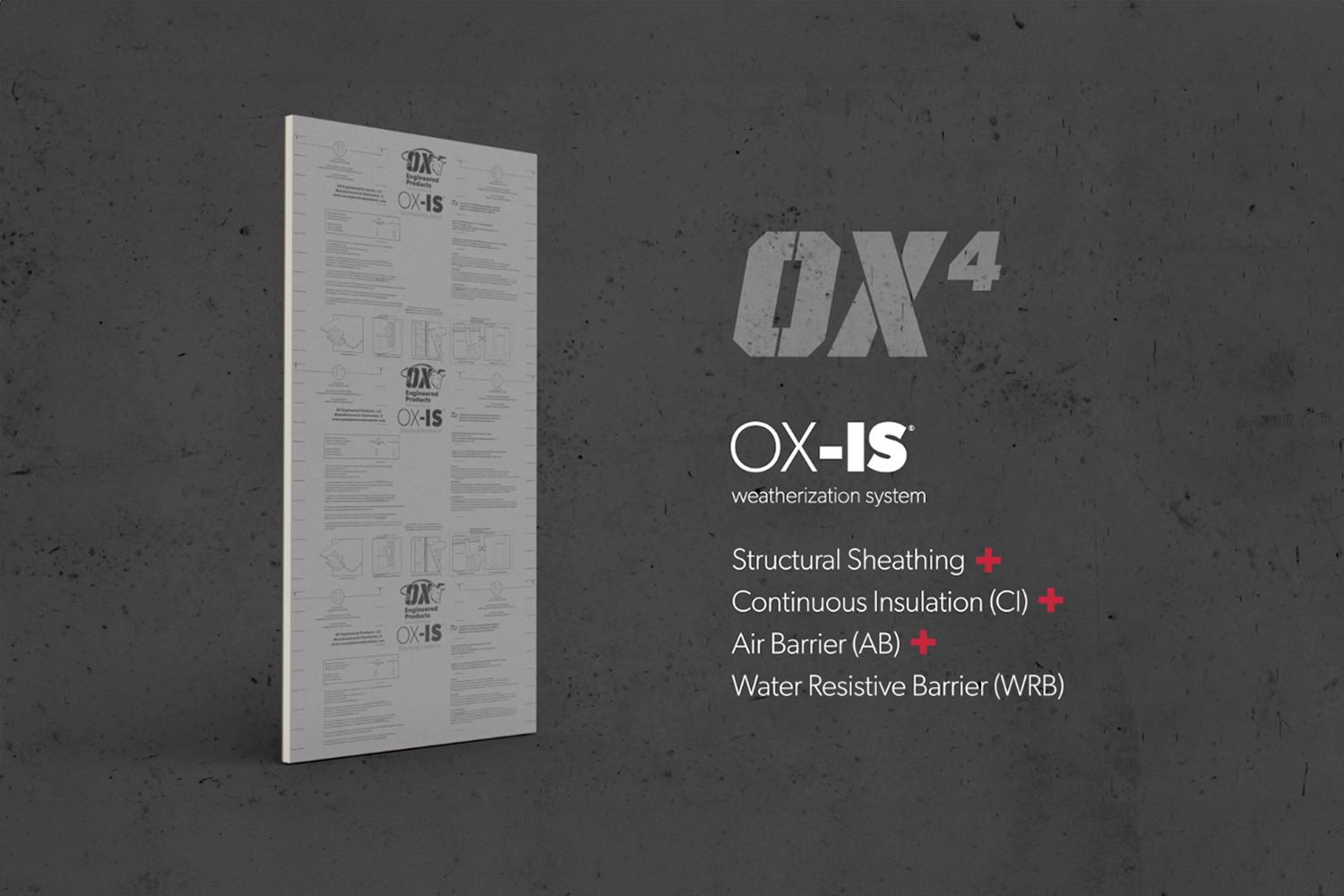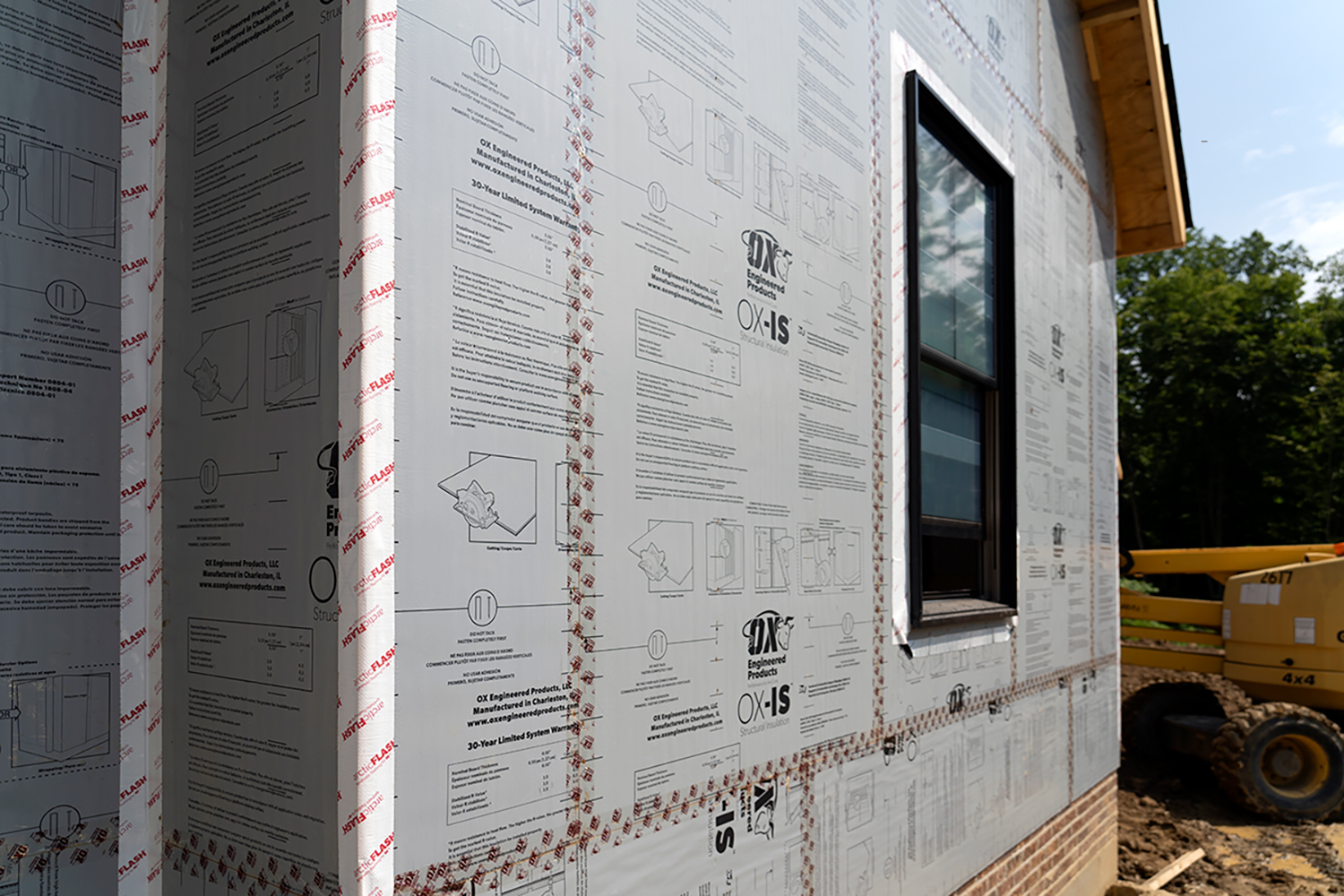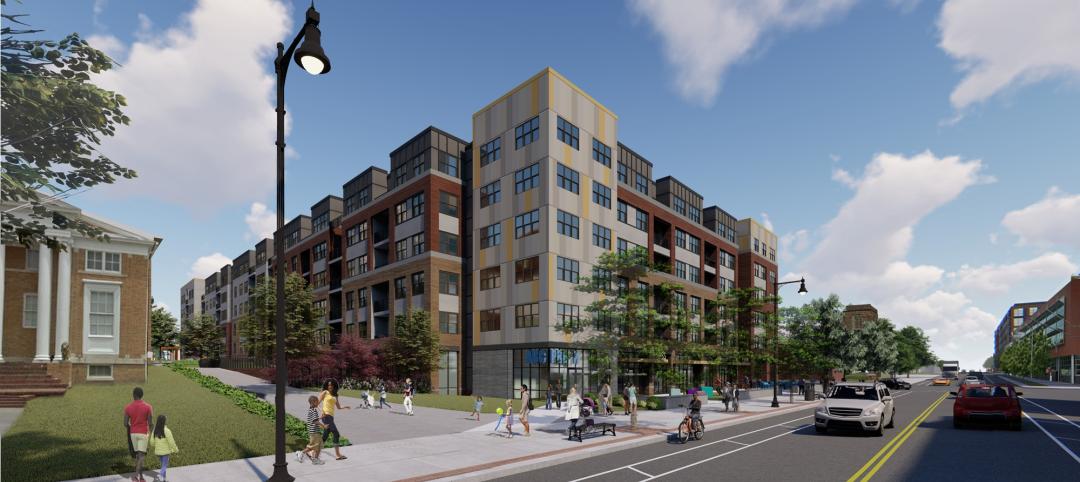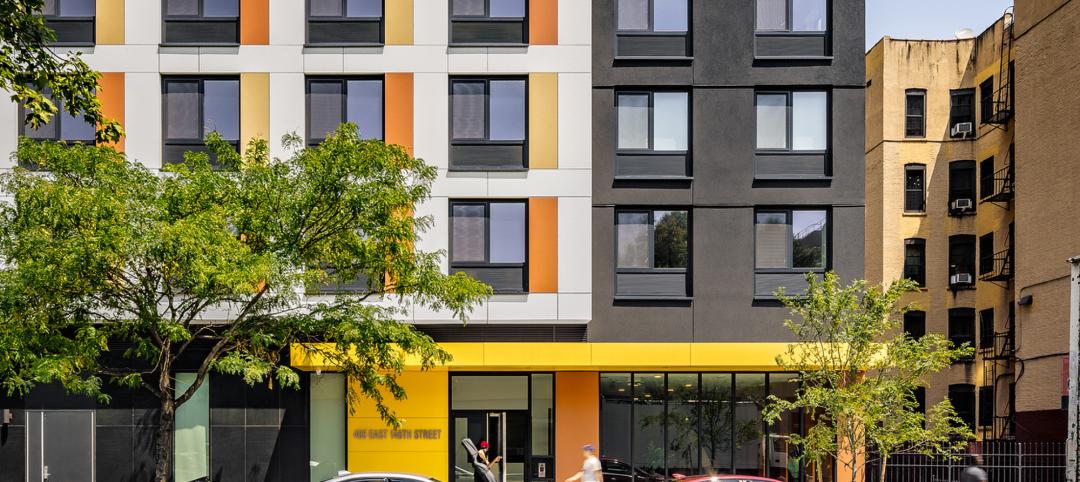For any construction project in the 21st century, achieving energy-efficiency is a prime directive. Among the arsenal of tools available to builders charged with constructing exterior walls, insulated sheathing stands out as a key component in enhancing overall thermal performance. These integrated materials, such as the innovative solutions offered by OX Engineered Products, play a vital role in optimizing energy efficiency, providing structural strength, and enhancing comfort levels for occupants inside of multifamily dwellings.
Total Thermal Performance
Insulated sheathing is designed to enhance the performance of a building’s thermal envelope while adding structural strength. By providing an additional layer of continuous insulation on the outside of the exterior walls, it helps reduce thermal bridging, which occurs when heat is transferred through materials with higher conductivity, such as wood studs or metal framing. This results in more consistent indoor temperatures, reduced heat loss in winter, and minimized heat gain in summer. When installed with the proper seam tapes and used in conjunction with thermally efficient windows and doors, the material can significantly bolster a building’s overall energy efficiency.
Furthermore, integrated insulated sheathing materials can serve as a moisture barrier as well, protecting the building from water infiltration and condensation. This not only improves the long-term durability of the structure but also enhances indoor air quality by preventing mold and mildew growth.
In addition to its thermal and moisture benefits, insulated sheathing – when installed continuously and properly – contributes to the overall air tightness of a building envelope. This air sealing effect helps reduce the infiltration of outside air, preventing energy loss associated with unwanted drafts. When combined with other energy-efficient building practices, such as the proper sealing of joints and penetrations, insulated sheathing can play a pivotal role in achieving a high-performance building envelope that meets or exceeds energy code requirements.
These materials specifically help meet the 2021 International Energy Conservation Codes and can assist builders and owners in achieving significant federal rebates such as the 45L tax credits, which apply to both single-family and multifamily construction.
Integrated Solutions: The OX-IS Advantage
A prime example of a high-performance integrated material is OX Engineered Products' OX-IS insulated sheathing system. While OX-IS offers exceptional thermal insulation, its benefits go beyond just enhancing R-values. The system is designed to bolster the performance of the overall building envelope, contributing to improved energy efficiency, indoor comfort, and the health of the structure.

Moreover, OX-IS is easy to install, reducing construction time and labor costs. Its lightweight nature makes it ideal for a wide range of applications, from residential to multifamily and commercial buildings. Additionally, OX-IS is an environmentally friendly material made with more than 70% post-consumer recycled materials, contributing to greener structures.
See the Stats
According to a study by the Department of Energy, buildings account for approximately 40% of total U.S. energy consumption. By incorporating insulated sheathing, builders can do their part to help reduce this figure. The energy efficiency of the built environment is crucial to achieving global sustainability goals, and selecting the right products can have a big impact.
On a micro scale, per individual structure, products such as OX-IS can reduce ACH50 blower door test results by 15 to 20 percent, some homes and buildings even greatly exceeding this number. In addition, the 4-in-1 insulated sheathing material has proven to reduce heating and cooling costs by anywhere from 20 to 40 percent, allowing owners to choose downsized HVAC systems when outfitting a multifamily building with new units. This, in itself, can save owners big. Finally, when compared to using uninsulated OSB, 1-inch OX-IS delivers a 1,100% increase in R-value for the structure.
Ultimately, selecting insulated sheathing materials leads to substantial energy savings over the life of a building and helps to create a reduced carbon footprint.
Building Better
Insulated sheathing plays a crucial role in improving the thermal performance of multifamily buildings. To meet the most stringent code requirements set by the International Code Council, many builders are using insulated sheathing in conjunction with standard batt or spray foam for even greater thermal performance.
Integrated products such as OX-IS are helping builders nationwide meet these rising energy demands, while giving a much-needed boost to a building’s air and moisture resistance.
By leveraging these innovative, integrated products, the industry can continue to create sustainable structures that meet the evolving demands of modern construction.
Related Stories
MFPRO+ New Projects | Oct 30, 2024
BIG’s One High Line finally reaches completion in New York City’s West Chelsea neighborhood
One High Line, a luxury residential project spanning a full city block in New York’s West Chelsea neighborhood, reached completion this summer following years of delays related to investor lawsuits.
MFPRO+ New Projects | Oct 30, 2024
Luxury waterfront tower in Brooklyn features East River and Manhattan skyline views
Leasing recently began for The Dupont, a 41-story luxury rental property along the Brooklyn, N.Y., waterfront. Located within the 22-acre Greenpoint Landing, where it overlooks the newly constructed Newtown Barge Park, the high-rise features East River and Manhattan skyline views along with 20,000 sf of indoor and outdoor communal space.
MFPRO+ News | Oct 22, 2024
Project financing tempers robust demand for multifamily housing
AEC Giants with multifamily practices report that the sector has been struggling over the past year, despite the high demand for housing, especially affordable products.
Codes and Standards | Oct 16, 2024
North Carolina’s code policies likely worsened damage caused by Hurricane Helene
The North Carolina Legislature’s rejection of building code updates likely worsened the damage caused by Hurricane Helene, code experts say. Over the past 15 years, lawmakers rejected limits on construction on steep slopes, which might have reduced the number of homes destroyed by landslides.
MFPRO+ News | Oct 16, 2024
One-third of young adults say hurricanes like Helene and Milton will impact where they choose to live
Nearly one-third of U.S. residents between 18 and 34 years old say they are reconsidering where they want to move after seeing the damage wrought by Hurricane Helene, according to a Redfin report. About 15% of those over age 35 echoed their younger cohort’s sentiment.
MFPRO+ News | Oct 9, 2024
San Francisco unveils guidelines to streamline office-to-residential conversions
The San Francisco Department of Building Inspection announced a series of new building code guidelines clarifying adaptive reuse code provisions and exceptions for converting office-to-residential buildings. Developed in response to the Commercial to Residential Adaptive Reuse program established in July 2023, the guidelines aim to increase the viability of converting underutilized office buildings into housing by reducing regulatory barriers in specific zoning districts downtown.
Mixed-Use | Oct 7, 2024
New mixed-use tower by Studio Gang completes first phase of San Francisco waterfront redevelopment
Construction was recently completed on Verde, a new mixed-use tower along the San Francisco waterfront, marking the end of the first phase of the Mission Rock development. Verde is the fourth and final building of phase one of the 28-acre project that will be constructed in several phases guided by design principles developed by a design cohort led by Studio Gang.
Sponsored | | Oct 7, 2024
ProWood® FR Used in Two 6-Story Multifamily Units
How ProWood FR Fire-Retardant Treated Products Benefited this affordable housing project
Affordable Housing | Oct 4, 2024
3 new affordable housing projects for October 2024
As affordable housing continues to grow, more projects are looking to diversify their footprint by adding mixed-use components, community areas, and more.
MFPRO+ News | Sep 24, 2024
Major Massachusetts housing law aims to build or save 65,000 multifamily and single-family homes
Massachusetts Gov. Maura Healey recently signed far-reaching legislation to boost housing production and address the high cost of housing in the Bay State. The Affordable Homes Act aims to build or save 65,000 homes through $5.1 billion in spending and 49 policy initiatives.

















